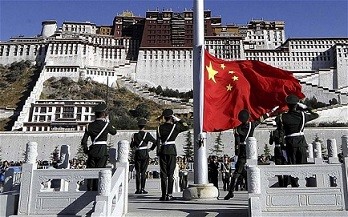In an effort to effectively manage its 88 million members, the Central Committee of the Communist Party of China (CPC) has enacted new rules pertaining to proper governance and sanctions for potential violators of the party’s code of conduct, according to a report by China Daily.
Two new regulations were formulated after the conclusion of the Oct. 12 meeting of the CPC's Political Bureau. The discussion focused on updating existing rules, which proved to be incompatible with the administration's anti-corruption drive. Thus, for the first time, the new rules are now applicable to all members.
According to Xie Chuntao, a professor with the Party School of the CPC Central Committee, some members are not well-informed with the rules and code of conduct governing party members, which eventually results in lackluster performance and a deviation from the party's vision.
The previous update of the party's rules in 2010, which merely prescribed certain forbidden activities, consisted of 53 articles. In contrast, the new rules are composed of only eight articles and emphasize a moral ethical code that members must abide by.
Gao Bo, a research fellow with the Chinese Academy of Social Sciences, stated that the new rules require officials to delineate between public and private interests--to be honest in politics while cultivating their personal character and family life.
Some observers have also stated that the newly promulgated guidelines are the most comprehensive and stringent since the start of the administration's campaign for political reform.
For Ma Huaide, vice president of China University of Political Science and Law, the main weakness of the previous disciplinary regulations was that they did not distinguish between the party's rules of conduct and the law.




























